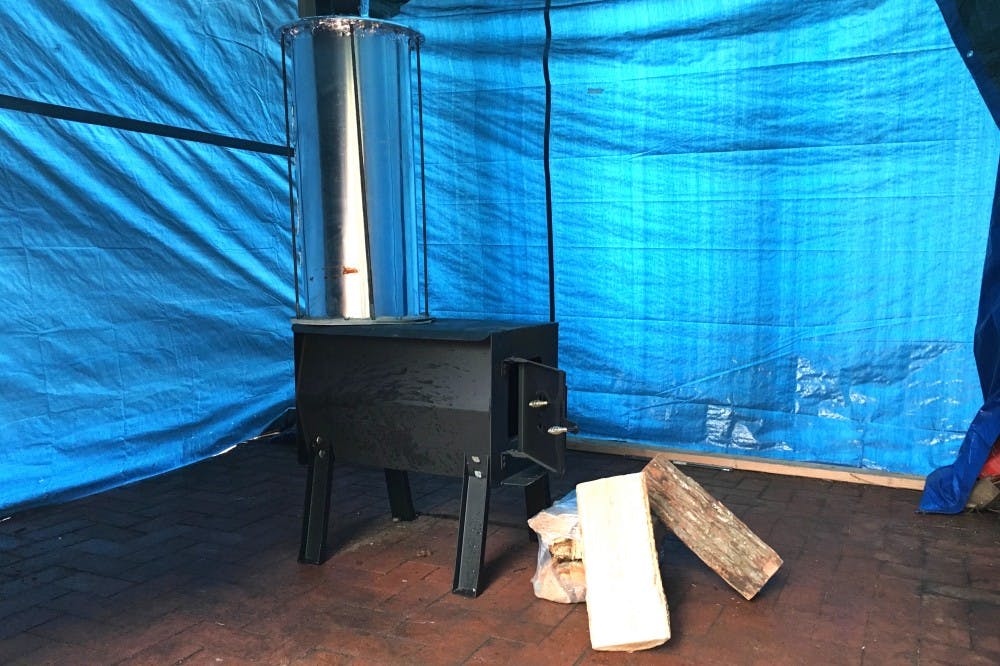Four Penn undergraduate students have created a project that will have a tangible impact on refugees’ lives.
Engineering seniors Mazin Blaik, Stephen Michalowski, Justin Gonsalves and Kellen Sanna are the creators of Ember, a device that attaches to a heater and allows it to work more efficiently. In particular, it was designed to be attached to wood stoves used by Syrian refugees, specifically in Lebanon.
“This is an attachment that attaches onto the exhaust pipe of the wood burning stove, and it captures some of the heat that is being lost through the exhaust,” Sanna said. “So it doesn’t generate its own heat; it just retains more of the heat from the fire, so the fire becomes more efficient through that manner.”
Blaik is of Lebanese origin, and his aunt works with Syrian refugees at the World Bank. He spoke with her about what type of humanitarian aid was needed; her answer was that Lebanon winters can get very cold, so a top priority was heat preservation.
“We wanted to do something humanitarian, something that helps people,” Blaik said. “It’s tough for refugees to stay warm, so we were wondering how they did that. And when we saw what they use — which is just a wood stove — we saw room for improvement. That’s where Ember comes in.”
Since the group does not have the capability to mass-produce Ember, they plan on keeping the project on a small scale for now, continuing to run more experiments to refine the product.
And they said they don’t see the product being useful for a market beyond refugees.
“This technology does exist in large industrial scales,” Sanna said. “But there’s not really an audience for this product outside of refugees, because there are not many people living permanently in tents in cold areas.”
Sanna pointed out that long-term campers could benefit from Ember, but that the true intention behind their creation is to help refugees.
“They’re living in these conditions because they’re forced to,” he said. “Lebanon doesn’t have official refugee camps, so it’s just private landowners who are allowing them to basically squat on their land, and so that’s why this problem exists.”
Since all four team members are graduating this year, the future of Ember remains unclear.
As part of their mechanical engineering class, they need to publish their full project plan online, which leaves several possibilities for the future open.
“One option we have is to open it up for other organizations to continue our work,” Michalowski said. “The other option is for us to kind of continue this as a side project while we go our respective ways after graduation.”
Ideally, the group would refine the product by running more tests. During initial tests of the product, they experimented in Blaik’s backyard in West Philadelphia, running about 72 hours of tests.
“Based on the testing, Ember reduces fuel consumption by one third,” Blaik said. “So you can use a third less fuel with Ember and still achieve the same amount of warmth.”
“We really focused on making Ember affordable,” Michalowski added.
According to Michalowski, the retail cost of the product will be just $67.









